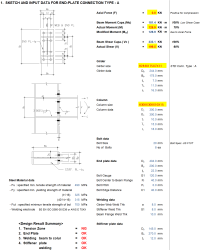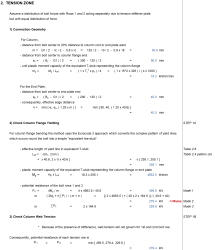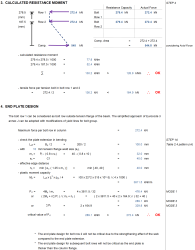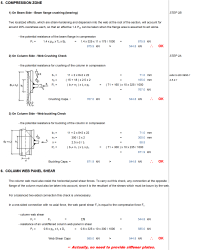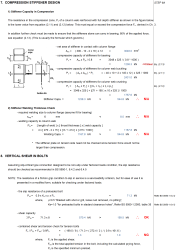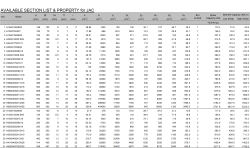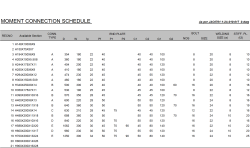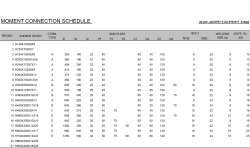BASE PLATE & END PLATE
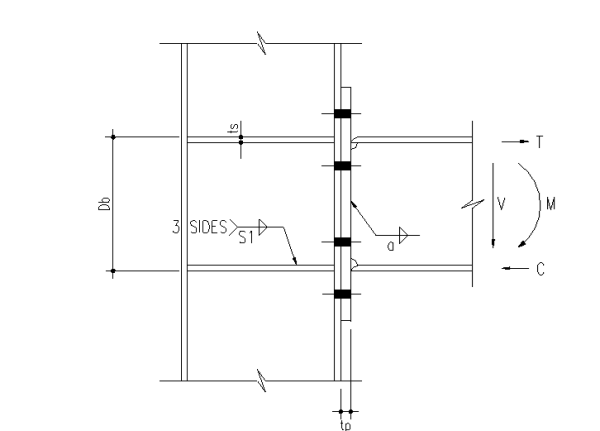
Description
Structural steel moment connection using bolts and welds
- TENSION ZONE
Connection Geometry:
- Typically involves an end plate welded to the beam and bolted to the column flange
- Bolts are arranged in rows above and below the beam flanges
Check Column Flange Yielding:
- Ensure the column flange can withstand the tensile forces from the connection
- Calculate the yield line pattern and corresponding resistance
Check Column Web Tension:
- Verify the column web can resist the tensile forces transferred from the flange
- Consider the effective width of the web in tension
- CALCULATED RESISTANCE MOMENT
- Determine the moment capacity based on the weakest component in the connection
- Consider all potential failure modes in tension and compression zones
- END PLATE DESIGN
- Design the end plate thickness to resist bending from bolt forces
- Ensure proper edge distances and bolt spacing
- COMPRESSION ZONE
On Beam Side - Beam flange crushing (bearing):
- Check the beam flange capacity to resist compressive forces
On Column Side - Web Crushing Check:
- Verify the column web can withstand local bearing stresses
On Column Side - Web buckling Check:
- Ensure the column web is stable against buckling under compressive loads
- COLUMN WEB PANEL SHEAR
- Calculate the shear capacity of the column web panel
- Consider the need for doubler plates if required
- COMPRESSION STIFFENER DESIGN
Stiffener Capacity in Compression:
- Design stiffeners to prevent local buckling and distribute compressive forces
- Ensure proper fit and alignment with beam flanges
Stiffener Welding Thickness Check:
- Verify weld sizes are adequate to transfer forces between stiffener and column
- VERTICAL SHEAR IN BOLTS
- Calculate the shear capacity of the bolts
- Ensure the number and size of bolts are sufficient to resist applied shear forces
- Welds
- Design fillet welds for the beam-to-end plate connection
- Ensure full-penetration welds are used where required (e.g., beam flange to end plate)
- Check weld capacities for tension, compression, and shear forces
Calculation Preview
Full download access to any calculation is available to users with a paid or awarded subscription (XLC Pro).
Subscriptions are free to contributors to the site, alternatively they can be purchased.
Click here for information on subscriptions.
Comments: 1
×
johndoyle-admin
1 year ago
Another great calculation. I have extended your XLC Pro membership by another 3 months!

